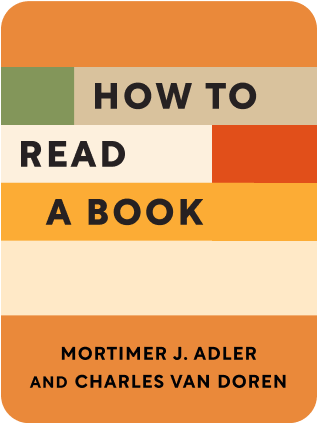

This article is an excerpt from the Shortform book guide to "How to Read a Book" by Mortimer J. Adler and Charles van Doren. Shortform has the world's best summaries and analyses of books you should be reading.
Like this article? Sign up for a free trial here .
Why should you examine a book’s structure? How can x-raying and categorizing a book help you level up your reading skills?
According to Mortimer Adler in How to Read a Book, examining a book’s structure is part of inspectional reading. Adler says that if you can’t articulate the book in one sentence and make an outline of the major points, then you can determine that a book is poorly written.
Continue reading for more of Adler’s tips on how to examine a book.
X-Raying a Book
Every good book has a skeleton that forms the structure of the book. The author covers the skeleton with flesh; your job is to strip it away to expose the skeleton again.
The methodical way to do this:
- Articulate the unity of the book in a sentence.
- Often the author does this for you. Science/philosophy writers have no reason to keep you in suspense, as suspense will deter you from reading it through.
- Construct an outline of the major parts of the book, showing the relation to each other and to the unity of the whole.
- Done methodically, it lists the major sections of the book; then outlines each section of the book; then outlines each subsection.
- Not every book deserves this treatment. Give the book the treatment it deserves.
- Aquinas’s commentaries on Aristotle are good examples.
Note that books are not meant to be published as mere outlines. The flesh of a book adds life to the skeleton and make them a joy to read.
If you can’t do the two above, then the fault may be in the book, as the author has failed to do her job.
Examples of Book X-Rays
Unity of The Wealth of Nations: “This examines the source of national wealth in any economy that is built on a division of labor. To study the price of commodities, it considers the factors of the wages paid labor, the profits returned to capital, and the rent owed the landowner. It discusses how capital can be more or less gainfully employed, and it describes the history and use of money to the accumulation and deployment of capital. It compares wealth in different nations and in different conditions. And comparing the economic and political systems, it argues for the benefits of free trade.”
Outline of Aristotle’s Ethics: “The work is divided into these main parts: 1) discussing happiness as the goal of life, and its relation to all other practicable virtues; 2) discussing the nature of voluntary action, and its relation to forming good and bad habits; 3) discussing various virtues and vices, both moral and intellectual; 4) discussing moral states that are neither virtues nor vices; 5) discussing friendship; 6) discussing pleasure.”
Categorizing a Book
When starting a book, figure out what genre of book it is. This prepares you to customize your engagement with the particular type of text. You’d engage a philosophy teacher differently from a physics teacher, and so you would treat a book from one genre differently from another.
The broad categorizations of genres are:
- Fiction vs Expository
- Expository books convey knowledge – opinions, theories, data.
- Theoretical vs Practical
- Theoretical works describe what is or that something is the case. Practical works teach you how to do something.
- Questions about the validity of something are theoretical; raising questions about the purpose it serves is practical.
- Any book that instructs you on what you should do is practical, including books on ethics (how to live our life) and economics (eg how to organize economic life of societies).
- Within theoretical books, there’s a categorization of History vs Science vs Philosophy
- History describes events that happened on a particular date in a particular place. Science and Philosophy books treat matters that can happen at any time or place – seeking timeless laws.
- Science deals with data that is outside the realm of your everyday comprehensible experience (eg cellular proteins doing things unobservable to you; species evolving beyond your observable time scale). Philosophy deals with things that are accessible to you everyday (eg the nature of happiness).

———End of Preview———
Like what you just read? Read the rest of the world's best book summary and analysis of Mortimer J. Adler and Charles van Doren's "How to Read a Book" at Shortform .
Here's what you'll find in our full How to Read a Book summary :
- How to be a better critic of what you read
- Why you should read a novel differently from a nonfiction book
- How to understand the crux of a book in just 15 minutes






